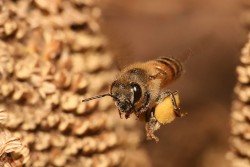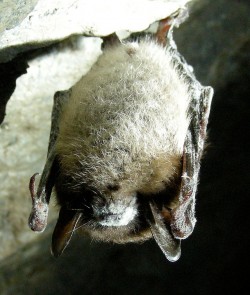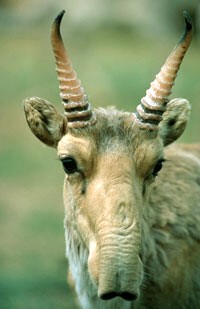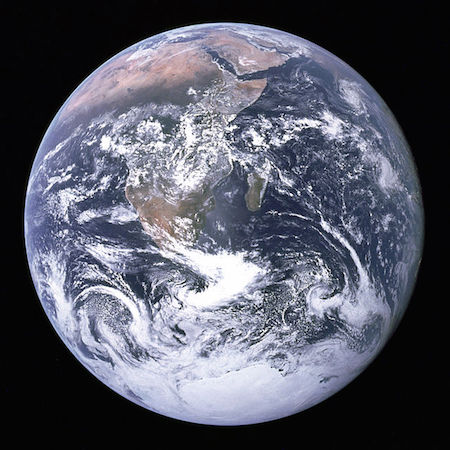We are the caretakers of a planet that stands at a crossroads; the future literally is in our hands.
Whether we have children or not, whether we are atheists or catholic, the matter is the planet is shouting her warning cry that she is in distress and needs help.
I am in my 30s and for nearly as long as I can remember I recall hearing about Global Warming and the danger of Greenhouse gasses. At first, it was this mythological idea that most people seemed to not believe in, and gradually over the past decade I hear less and less arguments against its existence––yet, there is still no actual plans for how we can turn around the current environmental crisis.
Our planet is a beautiful system that, when in balance, supports a variety of life. However, when just one species of plant, animal or insect is removed from that cycle the entire ecosystem is thrown off.
One of the major aspects of climate change is the mass extinction of species of animals. These mass extinctions are related to environmental factors, that we as humans control.
One of the worst habits of being a human on our planet is that many of us assume that because we can think and process information, drive a car, and use technology that we are more useful than other species—specifically those smaller than us. The ironic lesson we are learning is that the importance to our ecosystem is not determined by size.
 Back in 2013, we first became aware of the plight of the honeybee. Honeybee populations were down dramatically due to the pesticide and insecticides used by farmers on their crops––the very crops that honeybees are necessary for. It is estimated that if conditions continue we could actually witness an extinction of the honeybee in our lifetime, which would then affect wildflower, trees and overall crop stability.
Back in 2013, we first became aware of the plight of the honeybee. Honeybee populations were down dramatically due to the pesticide and insecticides used by farmers on their crops––the very crops that honeybees are necessary for. It is estimated that if conditions continue we could actually witness an extinction of the honeybee in our lifetime, which would then affect wildflower, trees and overall crop stability.
In 2007 a fungus causing White-nose Syndrome swept across 22 states decimating the bat populations of North America. In some areas over 20 percent of an entire bat colony was destroyed, which are hugely responsible for keeping pests and dangerous insect populations in check. As of now, researchers report, these colonies still have not bounced back from this fungus, and they are only hoping that the bats eventually become immune to it.
Most recently, 120,000 Saiga Antelope have died in the past month in Kazakhstan. Researchers are still baffled by this event, as it seems there is possibly no end in sight. An aerial survey that was done in the beginning of May found that herd populations were around 250,000, showing proof that in a months’ time half of the population has been lost. These animals have been critically endangered for years, and officials now fear that this epidemic will be the catalyst for their extinction.
Our planet is currently in the middle of its sixth mass extinction of plants and animals in just the past half-billion years. However, we are currently experiencing the worst occurrence of species extinction since the loss of the dinosaurs 65 million years ago. Although extinction is a natural occurrence, it is increasingly terrifying because of the number and speed at which we are losing them.
As of right now, if things don’t change we could lose between 30-50 percent of all plant and animal species by the middle of the century.
Unlike previous extinction events caused by natural events such as asteroids, volcanoes or climate shifts, the current crisis is caused by human beings. Ninety-nine percent of the current endangered species are at risk from habitat loss, introduction of exotic species and global warming.
We stand at a critical juncture in the environmental history of the planet. Many of the current effects cannot be reversed. However, they can be halted to prevent any further damage.
We are all connected on this planet, and we all stand the chance to lose so much. It’s time to take drastic action, and to stand up and be the change that the world needs.
“If you really think the economy is more important than the environment, try holding your breath while you count your money.” ~ Dr. Guy McPherson
We need to cut our dependency on fossil fuels, and explore options such as hemp and corn. We need to invest in solar electricity, and locally made products and food.
We need to re-think the way that we are living––the planet is counting on us.
Sources:
Catastrophic Collapse of Saiga Antelope Leaves 120,000 Dead in a Month
Honeybees on the Verge of Extinction
~
Relephant Links:
The Embarrassingly Simple Solution to Climate Change.
~
Author: Kate Rose
Editor: Travis May
Photo: Wikipedia, Wikipedia, Wikipedia, Wikipedia









Read 0 comments and reply